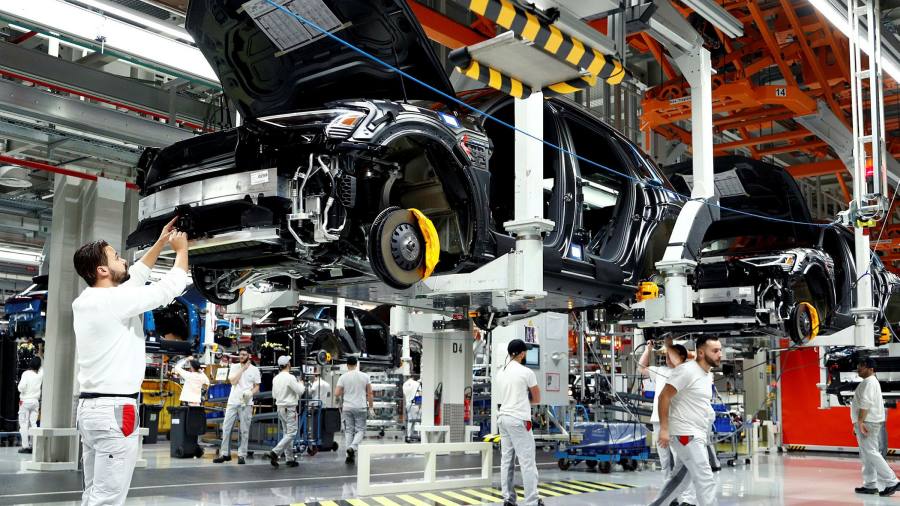[ad_1]
Audi expects profits from its latest electric models to match those from traditional vehicles in as little as two years as the premium brand embarks on a bold battery car offensive designed to steal a march on Tesla.
The premium brand’s newest electric car, the Q4 E-tron, will have the same margins by 2023 or 2024 enjoyed by its combustion engine equivalent, the brand’s chief financial officer Arno Antlitz told the Financial Times.
“Scale is really important, and so we expect to see margin convergence in two to three years,†he said. “The price reflects the cost, and battery electric vehicles are just at the beginning.â€
The premium carmaker is one of the few leading groups to make such a bold forecast on electric profits as most industry players warn of depressed margins from battery cars for several years.
However, some models are at parity. Renault chief executive Luca de Meo told the FT in January that the brand’s electric models such as the Zoe already make as much profits as their gasoline equivalents.
Audi expects a third of its annual sales, which last year were 1.7m, will be fully electric by 2025.
Its battery car push is tied to parent group Volkswagen’s ambitions to dominate electric sales, with recent plans for six battery gigafactories in Europe alone and a total of 20m global electric sales by 2030.
Rival BMW also set out its electric strategy recently, with half of all sales to be electric by the end of the decade, and the Mini nameplate to become a battery-only brand in the early 2030s.
Shares in VW and BMW have climbed following their electric presentations as those of Tesla and several other electric-only start-ups have come under pressure in a sign investor sentiment may slowly be tilting back towards the industry’s established players.
VW’s rally means its shares have climbed by about 50 per cent since the start of the year, placing them at their highest level since 2015.
Tesla has also suffered a blow after its models were excluded from sales subsidies in the UK following a government cut.
The valuations of Tesla and other electric-only carmakers that ride on its coat-tails has frustrated the established industry, which believes upstarts will struggle with the basic rigours of mass manufacturing.
While traditional carmakers have produced dozens of new electric models in the past year to meet emissions requirements, industry sales are still small, with manufacturers concerned that the transition to battery cars will lead to a short-term drop in profits until sales pick up.
Audi’s margins will be improved by sharing technology with its parent group VW, which has created two company-wide systems for building electric cars, one for smaller mass market vehicles, and one for high-end performance models.
The Q4 will sit on the mass market MEB platform, while some other Audi models will use the higher-end PPE platform.
VW expects other models, including several VW branded vehicles, to use the MEB system, allowing the cars to be made on the same production lines and reducing cost as the production volumes increase.
Falling battery prices will also help reduce electric car costs and raise margins, while the price of traditional vehicles is being pushed up by new technology installed to meet tightening emissions regulations in Europe.
“There will be a margin curve, you will see combustion engine cars slightly going down due to regulations and CO2 standards, and the margin of battery electric cars will be steeper,†Antlitz said.
[ad_2]
Source link






